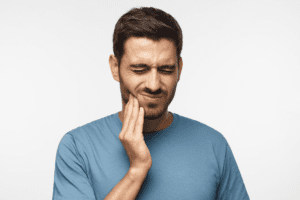 What is Tooth Decay?
What is Tooth Decay?
Tooth decay is becoming an ever increasing dental condition among adults and children. Decay can result in the loss of teeth and lead to diseases, such as gingivitis (gum disease). If gingivitis is left untreated and the condition advances to Periodontal disease, a patient can lose gum tissue as well as bone.
How can I Prevent Tooth Decay?
Regular brushing and flossing is at the root of this condition. If you neglect your daily dental care, decay is more likely to occur. Decay is caused by a mixture of saliva, bacteria and food particles that coat your teeth and form plaque. If plaque is not removed from our teeth through regular dental care, the plaque will harder and become impossible to remove through regular brushing. The bacteria in this hardened plaque, called tartar, will eat through your tooth enamel and cause small holes, called cavities. As the bacteria grows and eats into your tooth, the bacterial infection will cause your tooth to decay.
Can’t you just Fix Tooth Decay as it Appears?
Due to the serious consequences that are on set by tooth decay, at our practice, we believe that prevention is better than cure, and therefore our primary goal is for our patients to achieve and maintain optimum oral health.
Who is Most at Risk for Tooth Decay?
Certain individuals can be more susceptible to tooth decay due to genetics, certain medications, reduced saliva production and other illnesses, such as diabetes and Sjogren’s syndrome, put you more at risk.
How can your Provo Dental Office Help?
Our dentists are here to help you whether it be through regular checkups, where we will check for any signs of tooth decay, or give advice on how to maintain your oral hygiene at home. We can typically provide every type of dental service without having to refer you to other specialties. This flexibility saves you time and keeps your total dental care within one practice. Total care begins with regular hygiene visits, for professional cleanings that remove plaque, regular check-ups and continued home oral health routines.

 What is Tooth Decay?
What is Tooth Decay?